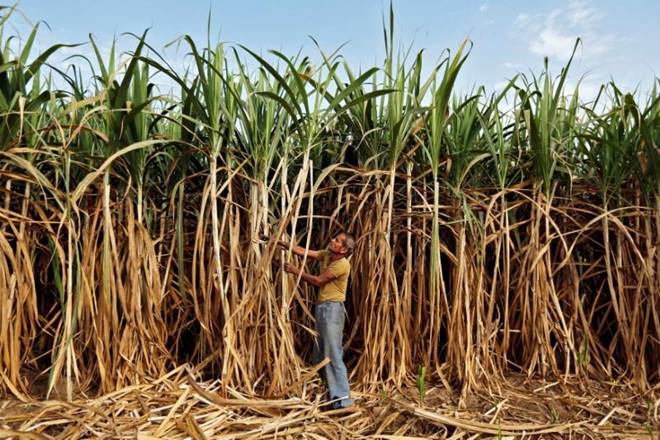Ruling out any conflict between the statutory minimum price (SMP) of sugarcane fixed by the Centre and the advisory price by the state government if the latter is higher, a five-Judge Constitution Bench of the Supreme Court on Wednesday refused to refer the issue to a larger Bench, as sought by sugar mills of Uttar Pradesh.
Since 2009-10, the SMP has been replaced with fair and remunerative price (FRP) and some states like Uttar Pradesh continue to announce state-advised prices which are higher than FRPs.
Settling the issue, the Bench led by Justice Arun Mishra said there is no conflict till the time the price fixed by the state government is higher than the central government. “There is no conflict between the two decisions of this court – Tika Ramji and UP Coop. Cane Unions Federations – therefore, there is no necessity to refer the matter to the larger Bench consisting of seven Judges,” the SC stated while terming the view taken by another five-judge Bench in the case, UP Cooperative Cane Unions Federation vs West UP Sugar Mills Association, as the “correct view.”
Syed Shahid Husain Rizvi, who appeared for Bajaj Hindustan, said, “The issue has been settled now once and for all. The sugar industry has no way but to accept the SC judgment. However, there is no financial liability on sugar mills as of now as all the dues have been cleared so far.”
According to the SC, by virtue of Entries 33 and 34 of List III of Seventh Schedule, both the Centre as well as the state government have the power to fix the price of sugarcane. “The central government having exercised the power and fixed the ‘minimum price,’ the state government cannot fix the ‘minimum price’ of sugarcane. However, at the same time, it is always open for the state government to fix the “advised price” which is always higher than the “minimum price”, in view of the relevant provisions of the Sugarcane (Control) Order, 1966, which has been issued in exercise of powers under Section 16 of the U.P. Sugarcane (Regulation of Supply and Purchase) Act, 1953,” the Constitution Bench said in its order.
Rejecting the stand of the sugar mills, the top court said Section 16 of the 1953 Act, which confers power on the state government to fix the remunerative/advised price at which sugarcane can be bought or sold, is not repugnant to Section 3(2)(c) of the Essential Commodities Act 1955 and Clause 3 of the Sugarcane (Control) Order as “the price which is fixed by the central government is the “minimum price” and the price which is fixed by the state government is the “advised price” which is always higher than the “minimum price” fixed by the Central government and, therefore, there is no conflict.
It is only in a case where the “advised price” fixed by the state government is lower than the “minimum price” fixed by the central government, the provisions of the central enactments will prevail and the “minimum price” fixed by the central government would prevail. So long as the “advised price” fixed by the state government is higher than the “minimum price” fixed by the Central government, the same cannot be said to be void under Article 254 of the Constitution,” the SC said.
A batch of petitions filed by sugar mills had sought the apex court’s clarification on whether the state government has the power to fix a minimum price for sugarcane, when the Centre had already fixed the price. Mills stated that there cannot be two minimum prices, one fixed by the Centre and the other fixed by the state government, and the power to regulate the distribution, sale or purchase of cane under Section 16 of the 1953 Act does not include the power to fix a price.

